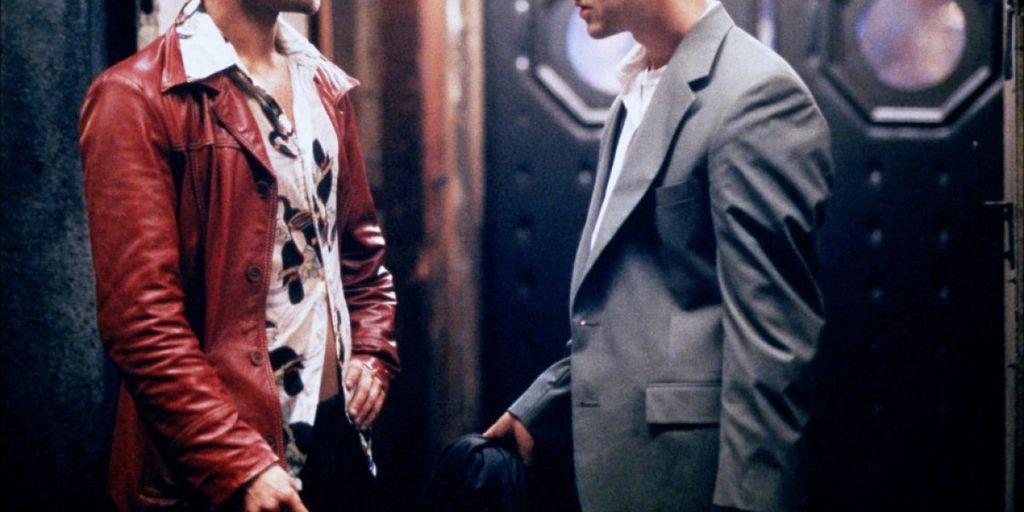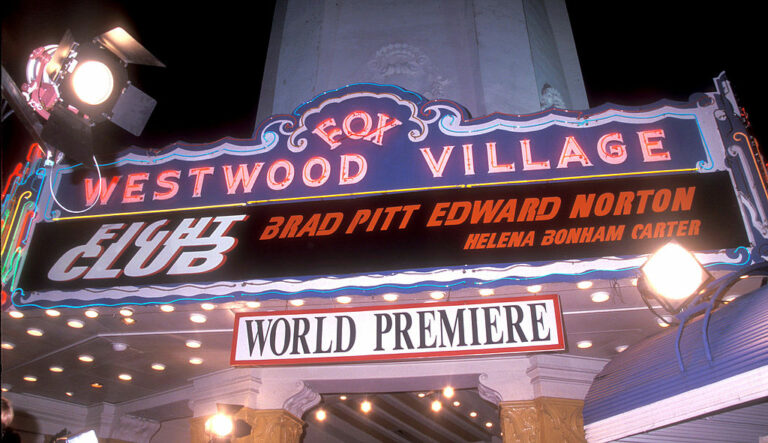Are you a fan of the movie Fight Club? If yes, then you must have heard about the controversies and misunderstandings surrounding it. Fight Club was a movie that created quite a stir when it was first released. It was criticized for promoting violence, nihilism, and toxic masculinity. But was that really the message the movie was trying to convey? In this blog post, we will explore the reasons why Fight Club was so controversial, misunderstood, and why people say we don’t talk about it. We will also delve into the satirical aspect of the movie, the mental illness Tyler had, and whether it was just a hallucination. Finally, we will discuss what Tyler Durden represents and the actual message of the movie. So, let’s get started and unravel the mysteries of Fight Club.
Exploring the Controversy Surrounding Fight Club.
Fight Club, a movie that was released in 1999, generated a lot of controversy and negative press. The main reason behind this was that the film’s storyline seemed to be promoting all the wrong lessons to its viewers. The movie revolves around an unnamed protagonist who works in the automobile industry as a recall specialist. The character is dissatisfied with his mundane life, and this leads him to develop an alter ego named Tyler Durden, who happens to be his complete opposite. Tyler is a free-spirited and rebellious character who promotes anarchy, chaos, and violence as a way to break free from societal norms and find true freedom.
One of the main reasons why Fight Club was so controversial is that the movie’s message was often misinterpreted by audiences. Some people believed that the film was promoting violence and anarchy as a way to solve one’s problems. They failed to understand that the violence portrayed in the movie was a metaphor for the protagonist’s internal struggles and represented his desire to break free from his mundane life.
Another reason why the movie was so controversial was that it challenged societal norms and values. Fight Club was a satirical take on consumerism, capitalism, and the American Dream. The movie portrayed a bleak and dark image of modern society, where people were obsessed with material possessions and had lost touch with their true selves. This was a stark contrast to the optimistic and idealistic image that Hollywood movies typically portrayed.
In conclusion, Fight Club was a controversial movie because it challenged societal norms and values and promoted violence as a metaphor for the protagonist’s internal struggles. The movie’s message was often misinterpreted, which led to negative press and criticism. However, despite the controversy, the movie has become a cult classic and continues to be popular among audiences even today.

🍿 Must Read Does Brad Pitt exist in Fight Club?
The Real Message of Fight Club: Why the Most Misunderstood Movie of Our Time Deserves a Second Look
Fight Club is a movie that is often misunderstood due to the complexity of its message. Director David Fincher masterfully sets up the characters of the narrator and Tyler Durden, which can make it easy to overlook the deeper meaning of the film. The narrator, played by Edward Norton, is a victim of the capitalist system, unable to form real connections with others. He instead seeks solace in the accumulation of material possessions, but this only leaves him feeling empty and unfulfilled.
Tyler Durden, on the other hand, represents a free-spirited and anti-establishment figure who rejects the consumerist culture that the narrator has become trapped in. Tyler’s appeal is undeniable, as he seems to have it all figured out and offers an alternative way of living. However, as the movie progresses, it becomes clear that Tyler’s methods are extreme and dangerous.
Many viewers may interpret the movie as glorifying violence or promoting toxic masculinity, but this misses the point entirely. The violence in the movie is a metaphor for the destruction of the capitalist system and the rebirth of a new, more connected way of living. Tyler’s character is a critique of the toxic aspects of masculinity and the danger of blindly following charismatic leaders.
In conclusion, Fight Club is a movie that can be easily misunderstood due to its complex themes and characters. The movie is much more than just a story of violence and rebellion, but a commentary on the pitfalls of capitalism and the importance of human connection. It is a movie that forces us to question our own values and beliefs and challenges us to live a more authentic life.
The Meaning and Significance of Fight Club
Fight Club, a novel by Chuck Palahniuk, is a critique of American consumerism and corporatization. The book highlights how these societal influences strip individuals of their unique identities. The story revolves around the narrator, who is discontented with his monotonous life and his job as a recall coordinator. He is sucked into the world of Fight Club, where he meets Tyler Durden, the charismatic and rebellious leader of the club.
Throughout the book, the author emphasizes how individuals are constantly bombarded with messages that dictate how they should live their lives, what they should buy, and even how they should look. These messages are often propagated by the media and corporations, who aim to create a homogenous society of obedient consumers. The narrator, like many others, has been brainwashed into believing that material possessions and societal status are the keys to happiness.
The message of Fight Club is that individuals should reject societal norms and seek to define themselves on their own terms. By doing so, they can break free from the shackles of consumerism and find true happiness. The book encourages readers to question the status quo and to think for themselves. It suggests that the pursuit of material possessions and societal status is ultimately unfulfilling and that individuals should seek more meaningful ways to define themselves.
In conclusion, Fight Club is a powerful critique of American consumerism and corporatization. The book highlights how these societal influences strip individuals of their unique identities and encourages readers to question the status quo. It suggests that true happiness can only be found by rejecting societal norms and defining oneself on one’s own terms.

Exploring the Cultural Phenomenon of “Not Talking” About Fight Club
The infamous line “we don’t talk about Fight Club” is one of the most memorable aspects of the movie. It’s almost a joke, meant to add to the mystique and exclusivity of the underground club. But as the movie progresses, it becomes clear that the line has a more sinister meaning. Tyler Durden, the mastermind behind Fight Club, isn’t content with just a small group of like-minded individuals. He wants to spread his philosophy of anti-consumerism and anti-establishment rebellion to the masses. And as he builds a violent cult of followers, secrecy becomes a key element of their operations. The more people that know about fight club, the more likely it is that the authorities will find out and shut it down. And so, the line “we don’t talk about Fight Club” takes on a more serious tone, as it becomes a way to maintain control and keep the group from being exposed.
>> Related – Why is Apocalypse Now so controversial?
The Art of Satire in Fight Club: Exploring its Humorous Critique of Society
Fight Club, a novel by Chuck Palahniuk, and its movie adaptation directed by David Fincher, is often considered a masterpiece of modern cinema. The story is centered around the protagonist, who is suffering from insomnia and a lack of purpose in his life. He eventually finds solace in attending support groups for various illnesses, where he meets the enigmatic Tyler Durden. Together, they form Fight Club, an underground organization that allows men to physically fight each other as a way to escape the confines of their mundane lives.
However, Fight Club is much more than a story about underground fighting. At its core, it is a satirical critique of consumer capitalism. Tyler, the main character’s alter ego, is a situationist and culture jammer. He believes in creating situations in everyday life to live more freely and challenge the society of the spectacle at its core. Society is a consumerist nightmare where people’s desires are manufactured by advertising and their happiness is dependent on material possessions.
Tyler rejects this way of life and instead advocates for a return to a more primitive way of living. He sees the destruction caused by consumer culture and believes that the only way to break free from it is to reject it entirely. By organizing Fight Club, Tyler creates a space for men to release their pent-up frustrations and find a sense of purpose in their lives.
Moreover, the film satirizes the self-help industry by presenting support groups as a method of emotional manipulation. The protagonist attends these groups not because he genuinely suffers from the illnesses they represent, but because he is seeking emotional catharsis. By doing so, he is playing into the hands of the consumer culture that seeks to capitalize on people’s emotions and desires.
In conclusion, Fight Club is a satirical masterpiece that critiques the consumerist society we live in. Tyler Durden’s ideas of creating situations and rejecting consumer culture are a call to action for viewers to reconsider their own lives and the impact of consumerism on our society.
Understanding Tyler’s Mental Health Condition in Fight Club.
Tyler Durden, the enigmatic character from “Fight Club,” suffered from a mental illness known as Dissociative Identity Disorder (DID) or Multiple Personality Disorder. DID is a complex psychological condition in which a person’s identity is fragmented into two or more distinct personality states. These separate identities or “alters” can have their own unique characteristics, behaviors, and memories, often resulting from a traumatic experience.
In the movie, Tyler Durden is portrayed as the alter-ego of the narrator, who is suffering from insomnia, depression, and a sense of alienation from consumer society. Tyler emerges as a charismatic and rebellious figure, who challenges the norms of society and forms an underground fight club. However, as the plot unfolds, it becomes clear that Tyler is not a real person but a figment of the narrator’s imagination, created as a coping mechanism for his unresolved emotional conflicts.
The portrayal of mental illness in “Fight Club” has been a topic of debate and controversy, with some critics arguing that it perpetuates harmful stereotypes and stigmatizes those who suffer from mental health issues. However, others have praised the movie for its nuanced depiction of mental illness and its exploration of the human psyche.
Overall, the depiction of Tyler Durden as an alter-ego in “Fight Club” sheds light on the complex nature of DID and the psychological impact of trauma. It also highlights the importance of seeking professional help for those who may be struggling with mental health issues.

The Reality of Fight Club: Fact or Fiction?
The revelation of the twist ending in Fight Club has led many viewers to question whether the entire story was just a hallucination. The fact that the character of Tyler Durden is revealed to be a figment of the narrator’s imagination has led some to believe that everything that happened in the movie was just a product of the protagonist’s mind. However, it is important to note that while the character of Tyler may have been imaginary, the events that took place in the movie were very much real.
The film is not just a story of one man’s descent into madness, but rather a commentary on the state of modern society and the inherent flaws of consumer culture. The character of Tyler Durden represents the narrator’s desire to break free from the constraints of his mundane life, and the violent acts that he carries out are a manifestation of this desire for rebellion.
While the twist ending may have left some viewers confused, it is important to remember that the movie is ultimately a work of fiction. The fact that Tyler Durden is not a real person does not diminish the impact of the story, but rather adds an additional layer of complexity to the narrative.
In conclusion, while it is tempting to view Fight Club as nothing more than a hallucination, the truth is that the events that took place in the movie were very much real. The twist ending may have been jarring for some viewers, but it ultimately serves to reinforce the film’s message about the dangers of consumer culture and the importance of individuality.
Deciphering the Symbolism: Understanding the Role of Tyler Durden
In Chuck Palahniuk’s novel, Fight Club, the character of Tyler Durden plays a crucial role in the story. Tyler Durden is the alter-ego of the narrator, who represents the crisis of capitalism as a crisis of masculinity. However, Tyler Durden represents something different altogether. He is portrayed as the “redemption of masculinity repackaged as the promise of violence in the interests of social and political anarchy”.
Tyler Durden is depicted as a charismatic and enigmatic figure who draws people towards him with his charm and radical ideas. He is seen as someone who can shake up the system and bring about change through anarchic means. Tyler Durden represents a rebellion against the status quo and the power structures that exist in society. He is a symbol of the desire for change and the longing for a new, more meaningful way of life.
Moreover, Tyler Durden represents the darker side of the narrator’s personality. He is the manifestation of the narrator’s repressed desires, anger, and frustration. Tyler Durden represents the narrator’s need to break free from the constraints of society and embrace his primal instincts.
In summary, Tyler Durden represents a complex set of ideas and emotions. He is a symbol of rebellion, change, and the desire for a new way of life. He is also a representation of the narrator’s repressed desires and the darker aspects of his personality. Tyler Durden is a character that has captured the imagination of readers and continues to be a source of fascination and debate.
More to discover
Fight Club’s controversial nature stems from its seemingly negative message and portrayal of violence. However, the movie’s deeper themes of societal dissatisfaction and the search for personal identity cannot be overlooked. The character of Tyler Durden represents a rejection of society’s norms and the quest for individualism. The satirical elements of the film add an extra layer of depth to the story, making it more than just a simple tale of violence and destruction. While the movie may be misunderstood by some, it continues to be a cultural touchstone and a reflection of the society in which it was made.
